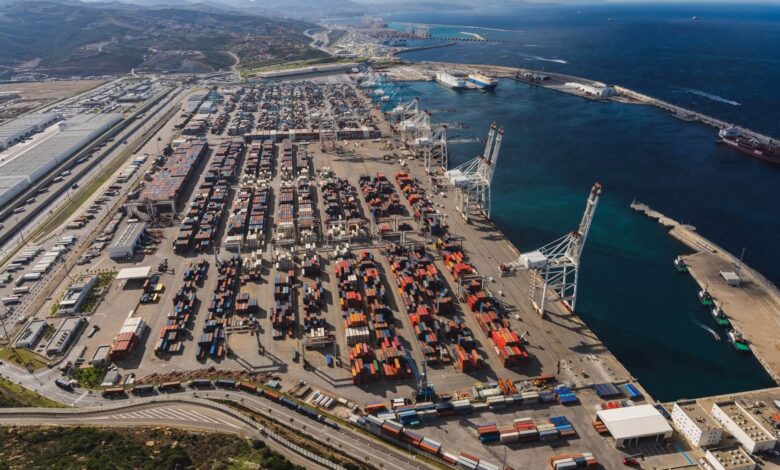Shibh Aljazeera Net | Red Sea | Shipping
The ongoing maritime operations by Sanaa forces against ships linked to Israel, the United States, and the United Kingdom are increasingly disrupting trade movements within the UK, according to Sea News.
In a report published on Monday, the site highlighted the growing economic impact of these attacks on retailers, who are intensifying their efforts ahead of the Christmas period.
The report noted that “shipping distances have increased by 9% as vessels are forced to reroute around Africa via the Cape of Good Hope to avoid the Red Sea. This has led to longer transit times and the need for more ships to carry the same volume of goods.”
It further explained that due to longer transit times and the added requirement for additional vessels, the number of ships available to transport goods has significantly decreased.
Additionally, the report stressed that one of the consequences of the longer routes to bypass the Red Sea is that shipping companies and traders are facing rising costs. These costs cover the additional time, fuel, and resources needed for extended journeys.
Andrew Thompson, CEO of Cleveland Group, which operates one of the largest container fleets in the UK, was quoted saying, “It’s hard to ignore the ongoing impact of the Red Sea crisis on our shipping operations.”
Thompson added, “Due to these ongoing distressing attacks, shipping companies are increasingly responding to growing security concerns by rerouting their journeys as a precautionary measure. We expect delays of two to three weeks for container deliveries to the UK, which will indirectly affect our clients.”
The report also reminded readers of earlier statements by the British Chamber of Commerce, which revealed that 55% of UK exporters and 53% of service companies have been impacted by the situation in the Red Sea. It also noted a 300% rise in container rental costs, along with delays of up to three to four weeks in delivery times.
Consulting firm Inverto highlighted that retailers across the UK have already had to significantly alter their purchasing strategies in preparation for the Christmas trading period.
Patrick Libberhoff, the company’s CEO, said, “This has put pressure on retailers as they stockpile more goods earlier than usual, but they may not have enough storage space. Retailers will instead need to look for short-term storage options, which can be very costly,” according to the report.
